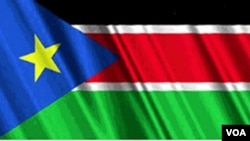Asia's newest nation and one of its oldest are stepping up to help Africa's -- and the world's -- youngest country, South Sudan.
On Friday, more than half of a $150,000 grant from the government of Timor-Leste, which became independent from Indonesia in May 2002, was released to officials in Jonglei state. The $80,000 is to be used to build a school in Bor County. Many schools in the county have been shut down by the 15-month-old conflict in South Sudan.
The cornerstone of the school was laid on December 5, 2013 in Kolnyang payam by then Prime Minister of Timor-Leste, Kay Rala Xanana Gusmão. Ten days later, violence erupted in Juba and spread around the most of the country, causing officials in Bor County to put the construction project on hold.
But conditions are such now in Bor County that construction can begin. County Commissioner Mamer Ruk said workers have begun digging the foundation, and construction is expected to be completed in a year.
Timor Leste has also pledged to build a hospital in Bor County, although no time frame has been given for that project.
Japan helps clean up
In Juba, meanwhile, the Japan International Cooperation Agency (JICA) is teaming up with the Juba City Council to clean up the main road in the Juba Nabari neighborhood. A recent visit by Japanese officials prompted the clean-up effort, JICA's public relations adviser Atong Demach said.
"The Japanese ambassador, as well as some of our officials, went to visit the road to see how the community is maintaining the road, and they were not so impressed with the results," Demach said. The officials found that the concrete culverts built aliong the road to help drain off water in the rainy season were blocked with household trash and sand, she said.
Before the road was built in 2013, the Juba Nabari community often flooded during the rainy season, making it difficult for residents of the neighborhood to move around freely, and increasing the risk of water-borne diseases.
Demach said the road fell into disrepair almost as soon as the Japanese handed responsibility for its maintenance to the local community. With the rainy season due to start next month, Demach said it is urgent that the culverts and the road are cleared of rubbish. Nabari residents will join Japanese engineers deployed with the U.N. Mission in South Sudan (UNMISS) and South Sudanese officials for the clean-up operation, which is expected to last three weeks, she said.
Construction of the murram roadway with its concrete drainage culverts cost more than $1-million in 2013.
JICA has said the road benefits more than 3,000 households in Juba Nabari. Demach said it is the duty of those residents to maintain the roadway.




